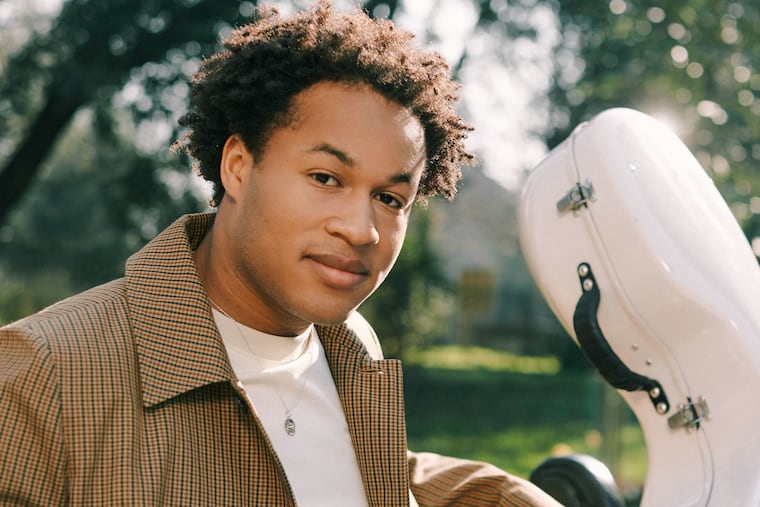Cellist Sheku Kanneh-Mason performed for Harry and Meghan’s wedding. This week, he’s in Philly.
The royal event brought the cellist's sound to 2 billion listeners, and changed his career.

When Sheku Kanneh-Mason had the chance to play at the wedding of Prince Harry and Meghan Markle in 2018, he said he “knew it would be a wonderful opportunity and a massive worldwide audience watching this event.” What the British cellist didn’t think about so much is what it would mean for his future.
“Massive” turned out to be 2 billion people who watched the royal wedding, and his career has soared since then.
Kanneh-Mason, 23, grew up in Nottingham, England with six siblings — all musicians — who play piano, violin or cello, or a combination. The cellist, who performs the Haydn Cello Concerto in D Major this Thursday, Friday and Saturday with the Philadelphia Orchestra, talked with The Inquirer about his royal moment in the sun and musical ambitions.
Interview edited for clarity and length.
Why did you choose to perform this piece, rather than a concerto that would make a bigger statement, like the Elgar or Dvorak?
Sheku Kanneh-Mason: Mostly because this is the piece I am presenting this season in many places, and I prefer to play chunks of the same repertoire to grow into pieces. For me, I love Elgar’s Cello Concerto. That’s a piece I’ve performed a lot and it would be a statement perhaps to perform this with the Philadelphia. But Haydn is also the music I grew up playing the most, mostly from his string quartets and other bits of chamber music, so it’s a language I understand and love.
Do you think the royal wedding changed your career trajectory?
Well, in terms of already having connected with audiences around the world before even going to some places, that was something I wasn’t used to. I hope that, of course, they are familiar with factors other than the fact that I played at the wedding. Also, one factor would be how I played, and that’s always my focus — how I am playing.
How would you like to shape your career? Are you more interested in chamber music or soloing with orchestras, or conducting?
Certainly not conducting. That would be very unlikely. I do a lot of chamber music and that’s something I enjoy the most, maybe. Concertos are always great fun and a wonderful feeling. And then collaborating with musicians outside of standard classical music. I was just doing a series of concerts this week with a jazz pianist of mostly improvised music.
What other things outside of standard classical music are you interested in?
I have a good friend who is a pop singer, so we do some sessions together. I did a project with a sitar player earlier this year. That was incredible. A massive challenge because sitar music is very, very different in the way it’s constructed and performed. Anything that interests me.
What about future collaborations with your siblings?
I play a lot with Isata, my older sister, who is a pianist. We will continue to do that I’m sure for years and years to come. I also have a piano trio with my brother and my sister. It’s wonderful to have people I know really, really well who I can also play with.
Are there any pieces or projects you’ve not had a chance to do?
I think one of my goals would be to commission a new cello concerto and perform that. That would be a wonderful experience. It’s something that’s been on my mind for quite a while.
Is there a composer you’d dream of commissioning?
I love the music of Thomas Adès. Of Edmund Finnis. I think he’s a very, very special composer. Leo Brouwer, I think his music is amazing. Many others.
What if you magically had the chance to commission a composer from the past who never wrote a cello concerto? Who would it be?
Beethoven, I would say. Yeah. We have this Triple concerto, which has a very big cello part. But having a concerto by Beethoven would be very special.
Sheku Kanneh-Mason performs with the Philadelphia Orchestra Thursday at 7:30, Friday at 2 p.m., and Saturday at 8 p.m. in Verizon Hall, Broad and Spruce Streets. Yannick Nézet-Séguin conducts the program, which also includes the premiere of Xi Wang’s Ensō, and, with soprano Pretty Yende, Mahler’s Symphony No. 4. Tickets are $10-$168, philorch.org, 215-893-1999.